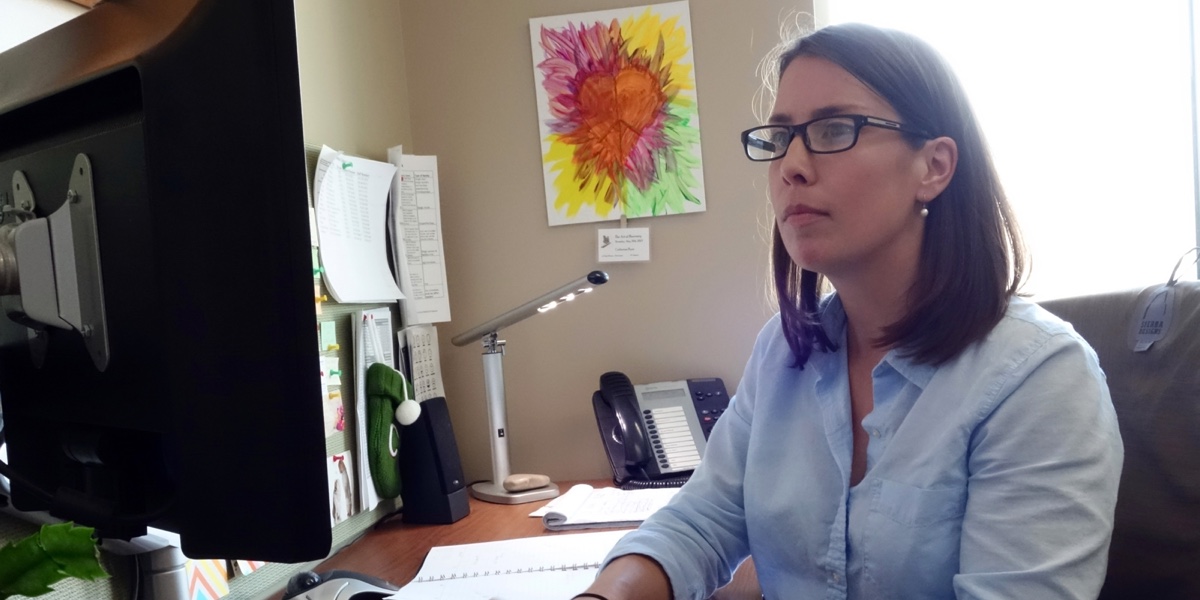The Local newsletter is your free, daily guide to life in Colorado. For locals, by locals.
Luke’s been on the streets for more than 15 years and is temporarily living in his mother-in-law’s basement. Ryon is trying to connect him with benefits, health care, substance-abuse treatment, and, of course, housing. The trouble is, where can he go? Someone like Luke might earn a $500 monthly check from disability and Social Security, hardly enough for rent and food. Ryon’s not sure Luke can hold a job—he struggles with depression and thought disorder—and if he could, in a catch-22, he’d likely lose his benefits, even if he made too little to pay rent. She helped him apply for Section 8 housing (a process that can take 12 to 18 months) and one place followed up with a request for more information, which is what Ryon is bringing him today.

About 10 minutes later, Ryon sighs as she slides back into her seat and rainwater runs over her slim shoulders. Luke is a no-show—again. “I think he’s just avoiding me,” she says and starts the car. She still has three client meetings today and doesn’t have much time to worry about Luke’s absence. Instead, she checks her phone before pulling away from the curb. The windshield wipers keep beating away the rain, and she drives on.
*Name has been changed








